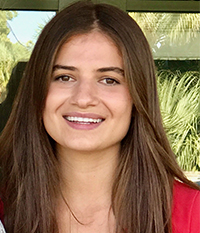Have you heard your child’s school counselor or other parents mention a “gap year,” but you’re not quite sure what it is and all that it entails — and, most importantly, whether it is a good idea for your young adult? Let us help demystify the gap year and guide you in the right direction.
What Is a Gap Year?
A gap year refers to the year before college when some students decide to defer admissions to college for travel, work or alternative methods of study. In other words, a gap year is a break from traditional school and a time to explore the world, oneself or a meaningful cause before four or more years of rigorous study.
In several countries, a gap year has long been the norm for high school graduates. In the United States, William Fitzsimmons, Dean of Admissions and Financial Aid at Harvard College; Marlyn E. McGrath, Director of Admissions at Harvard College; and Charles Ducey, Adjunct Lecturer in Psychology at Harvard Graduate School of Education added substantial momentum to the movement with their article advocating for gap years, “Time Out or Burn Out for the Next Generation.” And when Malia Obama announced she was taking a gap year before attending Harvard, curiosity about gap years increased even more in the U.S.
Gap years can be appropriate and energizing at any stage of life. Students take them between undergraduate and graduate school, and adults can take them, too. A plethora of gap year programs and resources have developed alongside this movement. This guide will kickstart your gap year thoughts and answer your most pressing questions about the basics, program options, experiences, and potential impact of a gap year for your child and family.
Should Your Child Consider a Gap Year?
Is your child burnt out after senior year? A gap year can provide them the time to step back from the pressures of school and reset before returning to an even more rigorous college curriculum.
Does your child want to explore the world before committing to an academic or professional track? A gap year might be one of the few, most opportune times to travel for a significant amount of time.
Does your child need a little extra time to mature before starting college? A gap year can provide the time for your child to learn to live alone and gain some independence before college.
Is your child undecided about what to study in college? They could take the year to do several internships and understand the working world so that your money is best spent on a college degree that makes sense for your child’s future.
Did your child get rejected from their dream school? Although many gap year students apply to college, get accepted and then defer admission for a year, some students may choose to re-apply to colleges during their gap years. Their decision to take a gap year, to re-apply and to do something meaningful with their time might make them stronger applicants.
Does your child want to become fluent in a foreign language? In our increasingly global world, foreign languages give any student an edge. A year immersed in another country can give your child the opportunity to become proficient in a foreign language.

College Application and Deferral Process
Most students will apply to college before their gap year to avoid the stress of applications during their year off. However, some colleges have term-specific acceptances and require students to apply the year they intend to enroll. Speak to the college counselor or to the admissions office directly to ensure that the college your child wants to attend allows deferrals.
After your student has been accepted to colleges, the next step is to let the college know about their intention to defer. Your child needs to send a letter to the admissions office requesting deferral for one year including an explanation of what they will be doing with the year and why it is important to their future college career. Most colleges will accept the deferral, but it is safer to let the colleges know sooner rather than later.
Financing a Gap Year
Although it is possible to do a gap year on a budget, they can get expensive. Therefore, it is important to have a financial plan so that the year does not break the bank. Unless your child intends to take a paid job for the year, which some students do, a gap year means another year on your dime. There are scholarships, grants and other resources available that you and your child can research to help pay for the year. Students intending to volunteer can fundraise or crowd-raise to pay for volunteer programs. Students wishing to do an adventure trip can do it for charity and find sponsors to support them. However, a gap year does not necessarily mean your child flies around the world volunteering or traveling. Gap years can mean different things for different students and can take place close to home or on the other side of the planet. See our list of program options below to find which one makes the most financial sense for you or your child.
Several colleges, such as Princeton, offer tuition-free bridge programs that send incoming students on a nine-month program overseas. If your student is set on taking a gap year, encourage them to apply to schools that offer this program.
Planning a Gap Year

After you and your child decide that a gap year is the right decision, the next step is to figure out what they want to do for that year. Although there are many programs that your child can enroll in for the year, it is also entirely possible to plan it yourselves. From working or interning, to volunteering or adventure travel, there are many opportunities to make your child’s year meaningful. Several opportunities can be found specifically at Go Overseas and below.
Gap Year Programs:
- A+ World Academy
- American University Gap Program
- AmeriCorps
- Amigos de las Américas
- ARCC Gap
- Bridgton Academy
- Carpe Diem Education
- Center for Interim Programs
- City Year
- Disney College Program
- Dynamy
- Edu-Odyssey
- EF Gap Year
- Global Leadership Adventures
- Global Volunteers
- High Mountain Institute
- International School for Earth Studies
- International Studies Abroad
- NOLS
- Outward Bound
- Rustic Pathways
- Seamester
- Semester at Sea
- Projects Abroad
- The School of The New York Times
- USA Gap Year Fairs
- Verto Education
- Where There Be Dragons
Gap Year Articles:
- Why Colleges Should Require a Gap Year (The Chronicle of Higher Education)
- Here’s Every Reason You Should Take A Gap Year Before College (Forbes)
- Starting College After a Gap Year (The Chicago Maroon)
- A Guide To Taking A Gap Year Or Gap Time In Midlife (Forbes)
- Should Your College Student Spend a Semester Abroad? (Better)
- Taking a Gap Year? Fill Out the Financial-Aid Forms Anyway (The Wall Street Journal)
- How Taking a Gap Year Can Shape Your Life (The New York Times)
- Making the Most of a Gap Year Before College (CNBC)
- How My Gap Year Changed My Life (CNN)
- Why Your High School Senior Should Take a Gap Year (TIME)
- How To Plan a Gap Year (The New York Times)
- Gap Year: 9 Great Reasons to Consider (Better)
Gap Year Books:
- “The Gap Year Advantage” by Karl Haigler and Rae Nelson
- “Ready or Not, Here Life Comes” by Mel Levin
- “The Complete Guide to the Gap Year” by Kristin White
- “Gap Years for Grown Ups” by Susan Griffith
- “Gap Year: How Delaying College Changes People in Ways the World Needs” by Joseph O’Shea
More from Better:
- Secrets to a Happy Life: Lessons From the World’s Longest Scientific Study of Happiness
- How To Help: These Organizations Aiding Domestic Violence Survivors Need Your Support
- 2023 Top Health, Wellness and Fitness Influencers

Macon Bianucci is a graduate of Northwestern University’s Medill School of Journalism. She is a former intern at Better, and she enjoys writing about social justice issues and politics. Macon is a longtime supporter of The Foundation For Tomorrow, a NGO in Tanzania that provides education and support for orphaned and vulnerable children.

